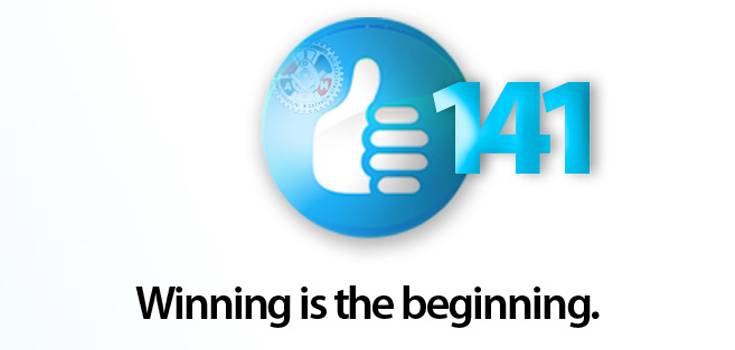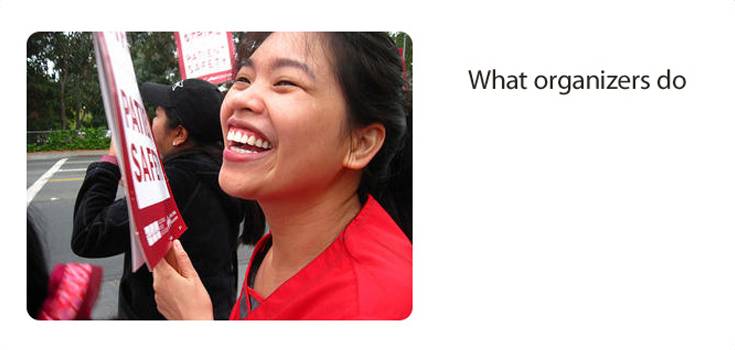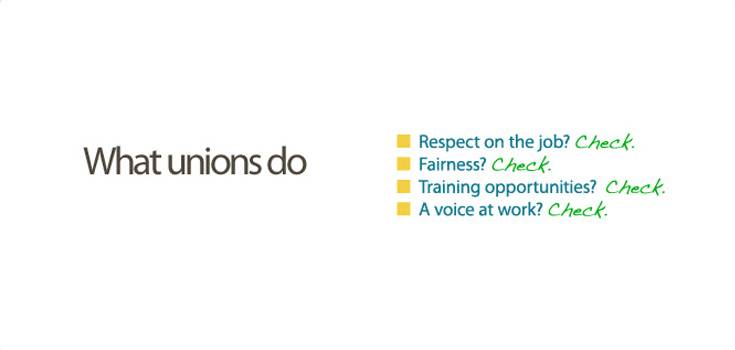
by Eric Price | Mar 3, 2016 | Departments, Home, Organizing
The size of District 141 membership nearly doubled in 2011–2012. That’s strength in numbers. Our success arises from District 141 members themselves, thousands of whom relentlessly volunteer time and talent, and vote. Leadership at District 141 Communications comes...

by Eric Price | Mar 3, 2016 | Organizing
Union organizers help people who work secure union representation at their worksite. A union organizer informs people (mostly nonunion workers) about their rights, identifies and develops leadership skills among workers, explains the union organizing process and helps...

by Eric Price | Mar 2, 2016 | Departments, Home, Organizing
Unions are about a simple proposition: By joining together, working women and men gain strength in numbers so they can have a voice at work in what they care about. They negotiate a contract with their employer for things like a fair and safe workplace, better wages,...
by Eric Price | Mar 2, 2016 | Departments, Home, Organizing
DL141 Update: April 29, 2016 The International Association of Machinists and Aerospace Workers (IAM) today announced it petitioned the National Mediation Board (NMB), the federal agency that oversees union elections in the airline and railroad industries, to conduct a...
by Eric Price | Mar 7, 2015 | Organizing
Only 17 states and the District of Columbia have laws that ban discrimination in the workplace because of a person’s sexual orientation. Only eight of those states and the District of Columbia ban discrimination in the workplace because of a person’s gender...
by Eric Price | Mar 7, 2015 | Organizing
Religious freedom is one of the principles on which America was founded, and one of the basic rights we value most. Title VII of the Civil Rights Act of 1964 prohibits employment discrimination based on religion by a private employer, state or local government or...




